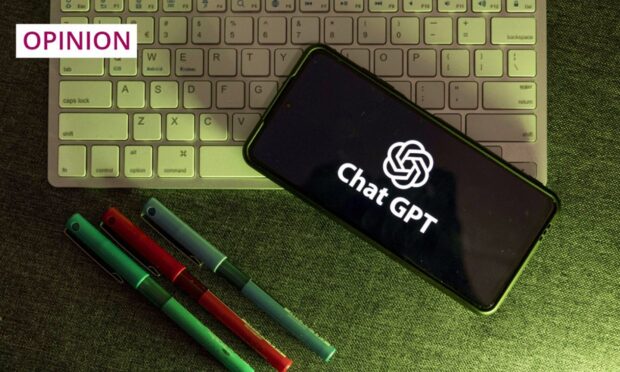It might feel like AI has only just burst into the public consciousness, but I am already being forced to consider its ethical implications at work.
For those of you who haven’t used it yet, prepare to step out of your cave. We are on version 4.0 of ChatGPT and, whilst I attend webinars about it, my younger colleagues have already incorporated it into their lives. Over half of Gen Z say they use AI every month.
I realised a junior staff member had used AI when the work she handed me was good – really good. I’d asked her to make a start on an award entry: one of the regular tasks we undertake both for clients and for ourselves.
The rewards if you win are great, but writing the entries is a formulaic, laborious and dull task. So, in the style of all the best managers, I delegated it. To be fair, I only expected her to make a rough start and then I would take over and sprinkle around the kind of details which I know judges like.
However, the first draft I got back was far above anything I had expected. It was well written, covered all the key points and included sophisticated terminology. I congratulated my colleague on her hard work.
The next day, I settled down to read it properly and that’s when the penny dropped: I noticed a few phrases which were quite different to her normal expressions, and the narrative jumped around a bit. My colleague explained that she had used an AI tool. She had entered all the information she already knew, and then asked AI to write copy in the style of previous winners.
Is this cheating? As an award judge myself, I would strongly argue it is not. Any award should be given on the basis of your achievement. At present, it is nearly always influenced by the skill of the submission writer, evidenced by the fact that those with more cash can pay professionals to write award entries for them. AI has the power to level the playing field, so that judges can easily compare achievements rather than explanations, and the nomination process is truly open to all.
Pros and the pitfalls
Some commentators point out that AI has the potential to make the four-day week a reality, due to its time -saving capabilities. However, as well as the potential gains of AI, I am already seeing some strange effects.
This month, two of my clients were recognised in the media for things they hadn’t done. One organisation was listed as a leading supplier of a product it did not make, and the other was heralded as a leading proponent of a technology it has no plans to use.
Even more strangely, one of these articles was “written” by a well regarded international news agency, yet my client never supplied information. We suspect both of these articles were part-written by AI.
We know that one of the drawbacks of AI is that it will make up missing information. The danger is that once AI thinks something is true, it may as well be true. Before you know it, it is the basis of an article being supplied by a news agency, published all over the world, and used as a trusted source.
So, where does all this leave us? I pondered this question with the fine focus group I find every week in the sauna at my local swimming pool – a true cross-section of society, who are always up for a half-naked chat. The general consensus was that the time-saving nature of AI is tempting, but it somehow removes the satisfaction of having worked on a task and gained knowledge in the process.
My view is that the change AI will bring is inevitable. Remember all the warnings about Wikipedia and how open to bias and inaccuracy it was? Nevertheless, it is now part of daily life. We know its limitations, but it’s too useful to ignore. AI heralds a world of even more disinformation and deepfakes, but the advantages are too useful.
The work started with a human and ended with a human
Back to the award entry: AI did not produce the finished article, it just saved time in the middle. The work started with a human and ended with a human. My colleague would not be the first person in history to get help with her writing, the only difference was that help came from a robot.
Whilst a couple of AI-related professions are in the list of the top 25 most in-demand jobs on LinkedIn, I will be interested to see what skills employers are looking for when I attend the Tech Job Fair in London next month. AI roles have not yet replaced those that require the human touch.
So, I will be keeping the enemy close; I need to know what it has to offer. Whether AI enables a shorter working week or simply replaces me altogether, I’m not sure yet. But when we go from a technology being invented to having your friends and colleagues using it within a few months, you know a revolution has come.
Eleanor Bradford is a former BBC Scotland health correspondent and now works in communications


Conversation